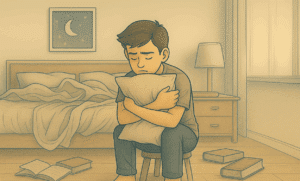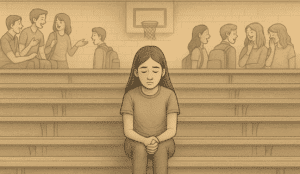Mental health treatment for teens involves various approaches, depending on the severity of the issue and individual needs. Two common forms of care are residential treatment for teens and outpatient programs. This article will explore these options in detail, comparing their benefits and challenges to help parents and caregivers make informed decisions.
What Is Residential Treatment for Teens?
Residential treatment for teens refers to an intensive form of care where teens live at a treatment facility for an extended period. These programs offer round-the-clock supervision, structured therapy sessions, and support for those facing severe mental health challenges. Teens who struggle with conditions such as depression, anxiety, or substance abuse may benefit from residential treatment because it provides a safe, controlled environment.
Benefits of Residential Treatment for Teens
Residential mental health treatment for teens, offers several benefits, particularly for teens who need more structure and support than they can receive at home or in an outpatient setting.
24/7 Supervision
One of the most significant advantages of residential treatment is that it provides constant supervision. Trained professionals are available to monitor teens at all hours, ensuring that they are safe and receive immediate assistance if needed.
Structured Environment
A structured daily routine is another benefit of residential treatment. Teens follow a schedule that includes therapy sessions, group activities, and time for reflection. This structure helps teens focus on their mental health and avoid distractions from the outside world.
Therapeutic Community
In a residential program, teens are surrounded by peers who are also working through mental health challenges. This sense of community can be highly beneficial, as teens can share experiences and support one another.
Comprehensive Treatment Plans
Residential treatment programs offer a wide range of therapeutic approaches. These may include individual therapy, group therapy, family therapy, and activities such as art or music therapy. The goal is to provide a holistic treatment plan that addresses the teen’s emotional, mental, and physical needs.
Challenges of Residential Treatment for Teens
While residential treatment for teens offers many benefits, it also comes with challenges that families must consider.
Separation from Family
One of the most difficult aspects of residential treatment is that teens must live away from home for an extended period. This separation can be emotionally challenging for both the teen and their family. However, many programs involve family therapy sessions to maintain a connection during the treatment process.
Cost
Residential treatment can be expensive. The cost of care, combined with the length of stay, can make it a significant financial investment. Some families may need to explore insurance coverage or payment plans to make the treatment more affordable.
Adjusting Back to Daily Life
After completing a residential program, teens may find it challenging to transition back to their daily lives. The controlled environment they were in may be very different from the realities they face at home. Ongoing support is critical to ensure they continue making progress after treatment.
What Are Outpatient Programs for Teens?
Outpatient programs for teens are less intensive than residential treatment. In outpatient care, teens live at home and attend therapy sessions at a clinic or mental health facility. These programs are typically designed for teens who do not need 24/7 supervision but still require regular support.
Benefits of Outpatient Programs for Teens
Outpatient programs for teens offer several advantages, particularly for those who have more manageable mental health issues or are transitioning out of residential care.
Flexibility
One of the most significant benefits of outpatient care is the flexibility it provides. Teens can continue their daily routines, such as attending school and participating in extracurricular activities, while receiving the mental health treatment they need.
Lower Cost
Compared to residential treatment, outpatient programs tend to be more affordable. Since teens do not live at the facility, the cost of care is significantly reduced, making it a more accessible option for many families.
Family Involvement
Outpatient programs often involve the family more directly in the teen’s treatment. Regular family therapy sessions can help strengthen communication and provide a supportive home environment for the teen’s recovery.
Real-World Application
Outpatient care allows teens to apply the coping strategies they learn in therapy to their daily lives. This real-world application can be beneficial as they practice managing their mental health challenges in a familiar environment.
Challenges of Outpatient Programs for Teens
Outpatient programs, while effective, also present challenges that families should be aware of.
Less Supervision
Outpatient programs do not provide the same level of supervision as residential treatment. Teens must be self-motivated to attend therapy sessions and apply the strategies they learn. This can be difficult for those who struggle with consistency.
Exposure to Triggers
Since teens continue to live at home, they may be exposed to triggers that could affect their mental health. In some cases, the home environment may not be conducive to recovery, making outpatient care less effective.
Limited Access to Therapies
While outpatient programs offer many therapeutic options, they may not be as comprehensive as residential treatment. Teens may have fewer opportunities for alternative therapies, such as art or music therapy, which can play an important role in recovery.
Comparing Residential Treatment vs. Outpatient Programs for Teens
When deciding between residential treatment for teens and outpatient programs, it’s essential to consider the severity of the teen’s mental health issues and their specific needs. Here’s a comparison of the two options:
| Aspect | Residential Treatment for Teens | Outpatient Programs for Teens |
| Supervision | 24/7 care and supervision | Limited supervision |
| Cost | Higher cost due to live-in care | More affordable due to part-time attendance |
| Structure | Highly structured environment | Less structured, more flexible |
| Family Involvement | Involves family therapy but less daily contact | Greater family involvement |
| Peer Support | Strong sense of community among peers | Less frequent peer interaction |
| Therapies Offered | Comprehensive, including individual and group | More limited therapy options |
Deciding Which Option Is Best
The choice between residential treatment for teens and outpatient programs depends on several factors, including the severity of the teen’s mental health condition, the level of support needed, and the family’s financial situation.
- Severe Mental Health Issues: Teens facing severe challenges, such as suicidal thoughts or dangerous behaviors, may benefit more from residential treatment. The constant supervision and structured environment can be life-saving for those in crisis.
- Mild to Moderate Issues: For teens with less severe mental health concerns, outpatient programs offer a balance between support and independence. This option works well for those who are motivated to attend therapy and have a stable home environment.
- Transitioning from Residential Care: Some teens may start in residential treatment and then transition to outpatient care. This approach allows for a gradual shift from a highly structured environment to greater independence while still receiving necessary support.
Conclusion
Both residential treatment for teens and outpatient programs provide valuable support for teens struggling with mental health issues. Choosing the right program depends on the individual’s needs, the severity of their condition, and the family’s ability to provide additional support. Residential treatment offers a more intensive, structured environment for those in crisis, while outpatient programs allow for greater flexibility and real-world application of therapeutic strategies.
If you or your teen is considering mental health treatment options, explore Mission Prep for more information on how we can help.


















